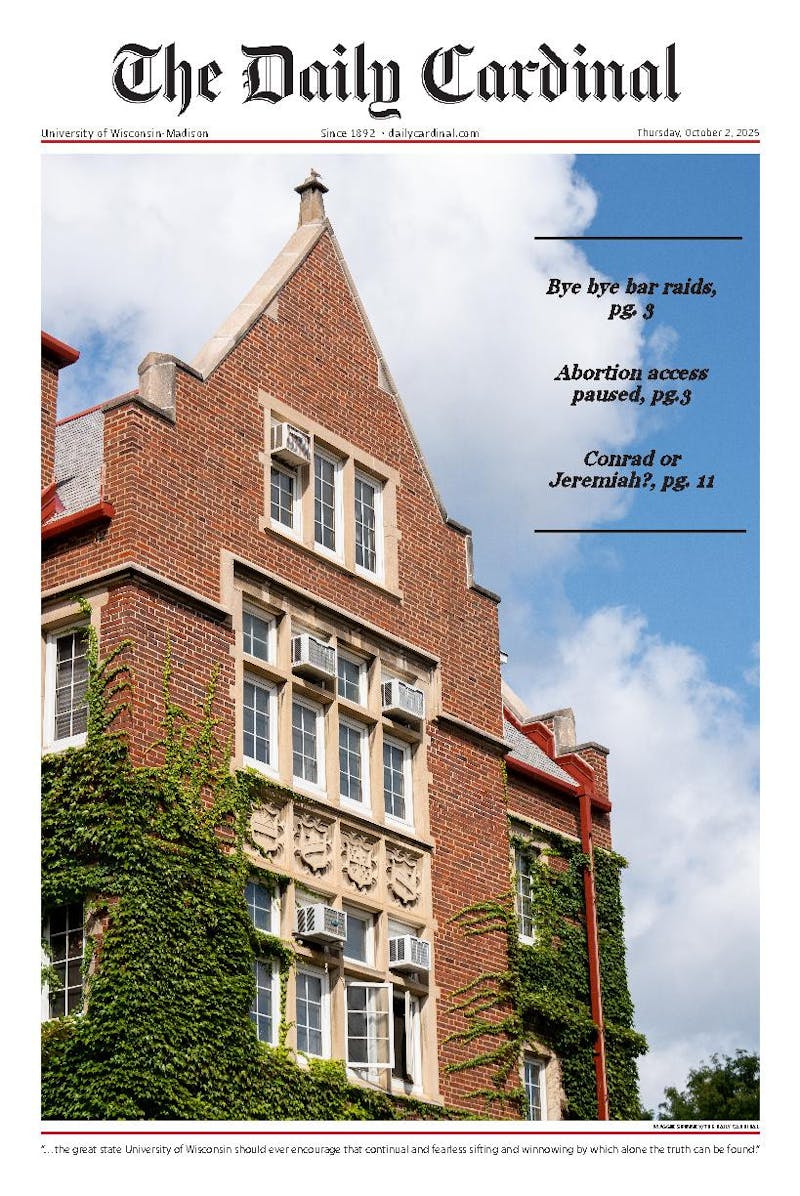\I wore white gloves. I lived with my mother and father. I was not a child. I was thirty-seven years old.""
Francis Orme utters these words at the opening of Edward Carey's new novel, ""Observatory Mansions."" From there, Carey takes Francis down the narrow and cramped corridors of the apartment complex that shares its name with the title of the book. Though his gloves prevent his fingers from touching ""anything with my bare hands,"" Carey's use of Francis' character gets a healthy amount of dirt beneath the fingernails of the novel and manages to cut to the quick.
The story begins with the Francis' fears over the looming arrival of somebody new to Observatory Mansions boiling to the surface. Observatory Mansions is cast as an overwhelming location that consumes its tenants and traps them inside of its quietly oppressive block of heated space.
It used to be a mansion called Tearsham Park, somewhere in beautiful fields, owned by the Orme family. Then the city caught up with it, engulfing it in traffic, as it changed its name and restructured itself to serve as apartments. Now Observatory Mansions holds its occupants inside a stifling brick dungeon that keeps them paranoid and edgy.
The new arrival defies the expectations of the tenants. Where they expected somebody who was male, old and dying, they instead came face to face with Anna Tap.
Anna ""had two freckles, neither big,"" and ""clean black hair which had permission to grow to just above the nape of the neck."" Her eyes ""were green and seemed extremely sore, somehow infected."" All in all she appeared as ""a sickly, unenviable portrait."" Anna is greeted as gracefully as the previous description but ends up staying with the characters of Observatory Mansions.
Soon Anna meets the various eccentric people and discovers their blends of neuroses and conditions. Carey comments, ""They are a rare group of individuals, bizarre creatures, who seem to have walked out of strange fairy tales."" There are Francis' mother and father, who maintain ""inner and outer stillness"" by never talking to each other. There's Peter Bugg, a man who cannot prevent himself from continually crying and sweating. Claire Higg is a complete recluse who only views the world through the gentle glow of her television. Then there is Twenty, also called Dog Woman. ""Twenty"" is the number of her apartment, while ""Dog Woman"" is the most accurate possible description of her personality.
Francis and Anna collide on a battleground of brief conversations and antiseptic interactions. With Francis' fears of intrusion always in her ear, Anna breaks open the memories of all the tenants, shattering the silence of Observatory Mansions.
At Anna's urging, Francis confronts his own strange past to find an explanation of his troubled condition. He searches through his stolen, 986-object ""Exhibition of Love"" but comes up with nothing but the blank sheet of his white gloves.
The novel centers around Francis Orme but focuses a keen eye on the strangers who share the apartment complex with him. ""Observatory Mansions"" is a wholly appropriate title because it is only through the act of passive observation that Francis knows his neighbors. They are strangers to each other, but end up as strangers to themselves. Each individual has dissolved him- or herself in the memories that, as Francis puts it, ""were sent out to ... swim up our noses while we slept."" The dissolution leaves empty people with nothing but their unusual aspects to differentiate them from one another.
The center of the novel is the very absence of people from each other's lives. Carey says, ""Solitude is only good when surrounded by people."" As the building is a ""traffic island,"" each person within it stands by their loneliness instead of each other. Though Peter, Claire, Francis and Dog Woman are in close proximity, their voices rarely disrupt the stillness that are part of the siege of silence.
The entire novel has the tone of a funeral caravan. It goes on for quite a while but does not become boring because of its grave nature. Throughout the book there is a very gray feeling of sadness, like seeing a dead bird on a drizzly day. Carey encapsulates this feeling with the observation, ""Whether good or bad, whether hell or heaven bound, or just left there to rot, our heavy, lifeless bodies are pushed under the sign of the cross.""
The dark mood of Edward Carey's first work does not diminish from its almost immaculate ability to provide insight where there seems to be none. In one of the clearest passages he muses, ""You can pick up a leaf and point it to the sun. Then you see everything about that leaf, everything that's going on inside, all the veins within, nothing is hidden.""
Because Carey handles Francis and the cast of misfits with such skill, they never seem lacking, nor does the story. The plot easily moves forward with its distant people spiralling outward. Somewhere in ""Observatory Mansions"" the reader picks up a very heavy piece of a great author's mind, and hopefully not while wearing white gloves.
""Observatory Mansions"" is published by Vintage Books.





